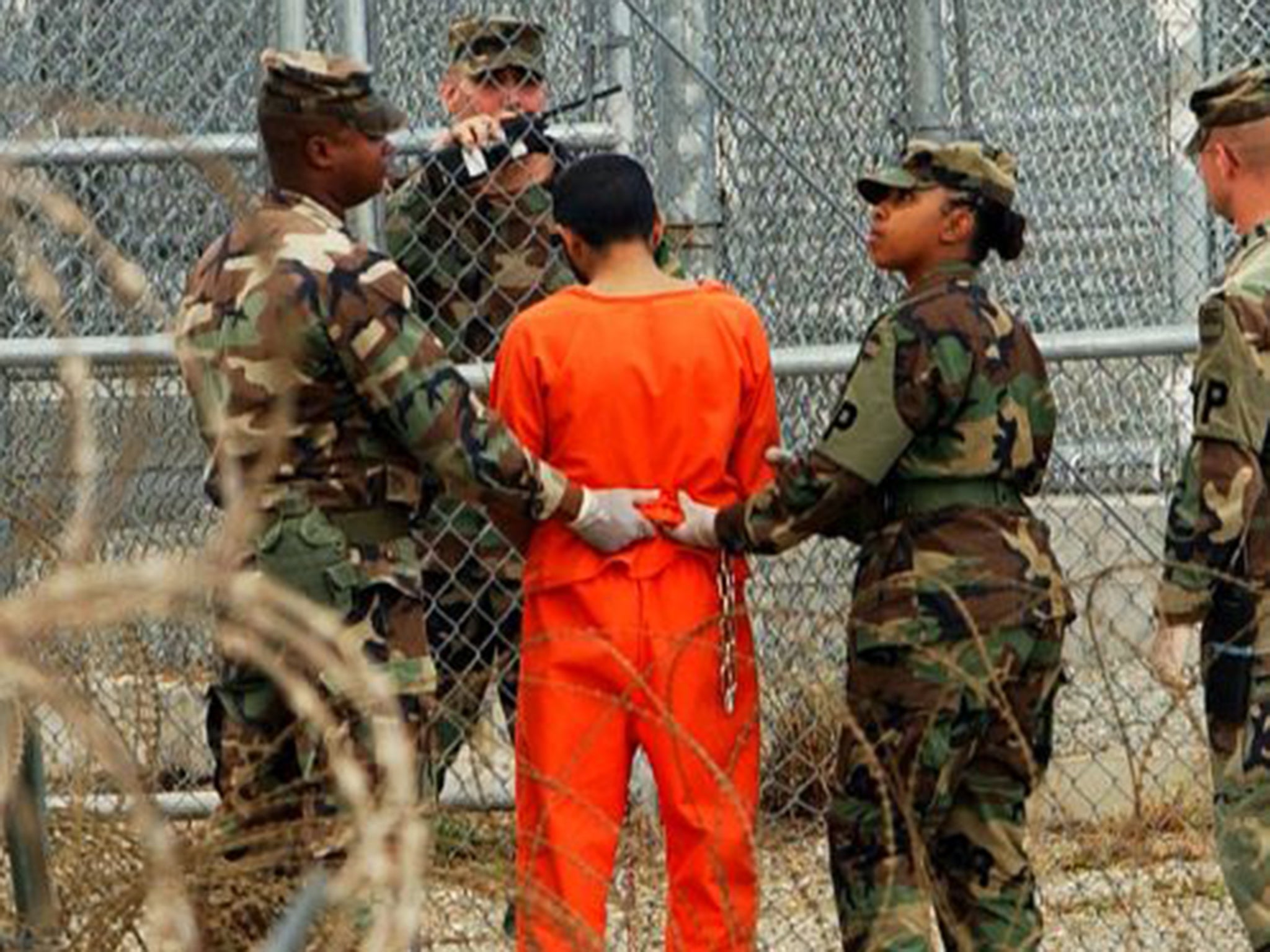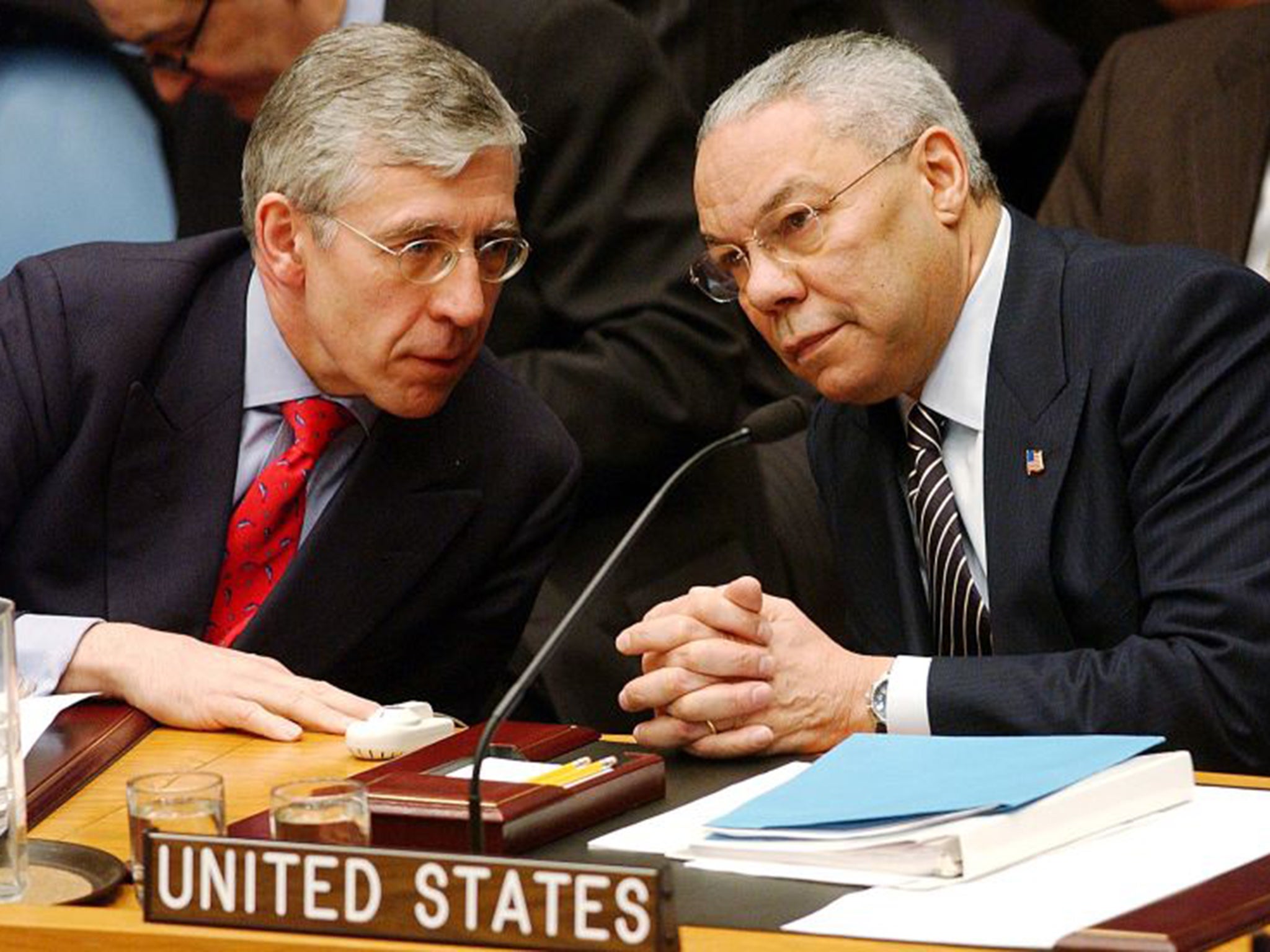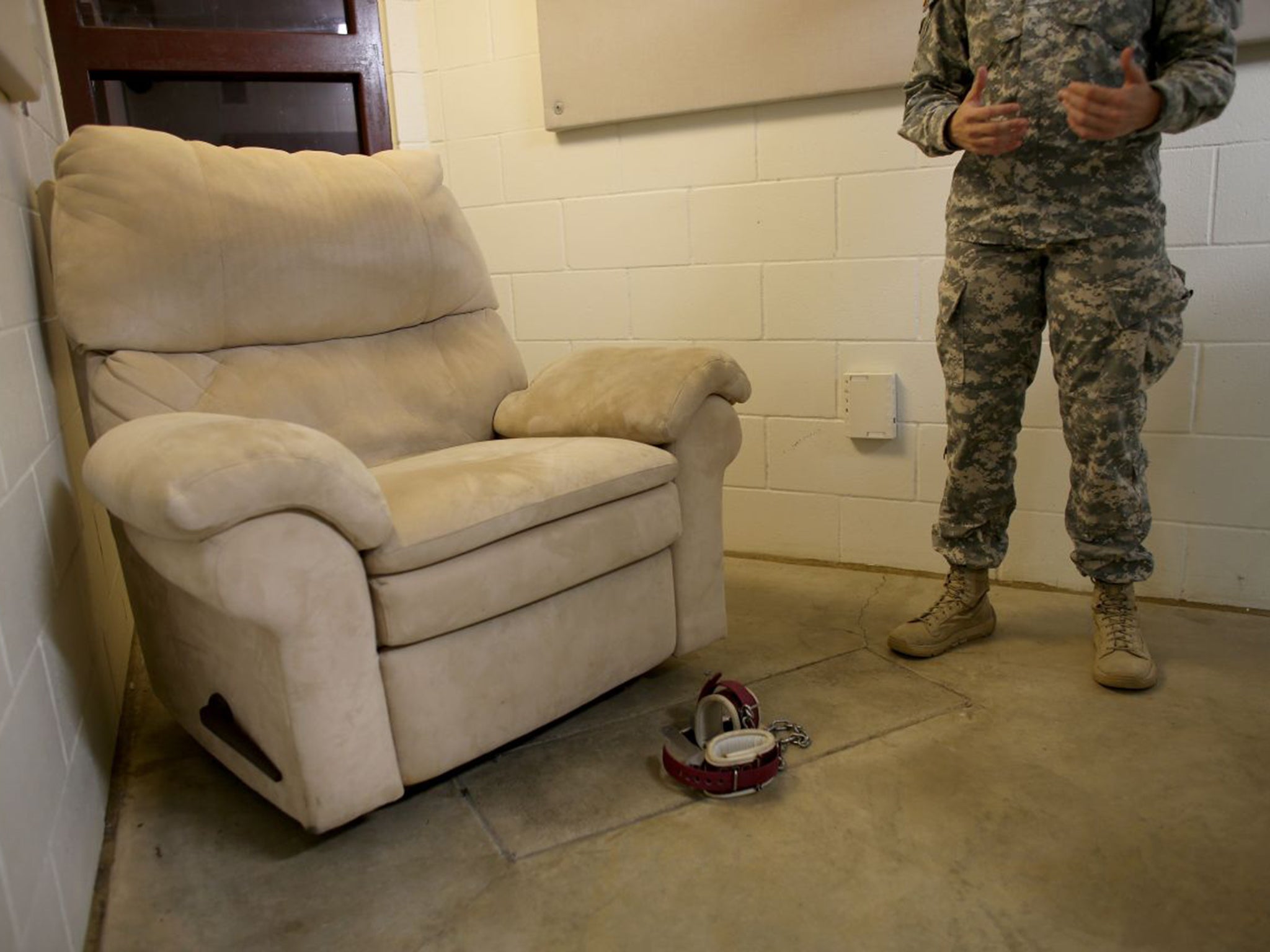British government suppressing key documents on allegations of UK collusion in torture and rendition
Files reveal Tony Blair and Jack Straw discussed treatment of British detainees in Guantanamo with US officials

Key documents that could shed light on allegations of UK collusion in torture and rendition are being suppressed by the British government. The newly uncovered files include confidential exchanges between former PM Tony Blair and former president George Bush about treatment of detainees at Guantanamo. Possibly most significant are five other documents, communications between the former UK foreign secretary, Jack Straw, and former US secretary of state, Colin Powell, expressing interest and concern about the welfare and legal status of UK detainees at Guantanamo.
While the documents may relate to casual expressions of care for the welfare of UK citizens, former detainees have alleged that British officials have either been present at, or submitted questions for, “extreme” interrogation by US officials. The US government has been required to make public a large number of files which relate to British involvement in the treatment of prisoners in the years following the 9/11 bombings.
Litigation continues across multiple US departments over the possible release of mainly intelligence-derived documentation. But 12 documents found in the US State Department’s search, not derived from intelligence, were also withheld. These relate to interventions by British politicians and officials over the treatment of detainees and interrogation techniques. In court papers, the State Department reported: “After reviewing the documents, the UK Government’s Foreign and Commonwealth Office requested that all 12 documents be withheld in full from public disclosure.”
The revelation will surprise campaigners, who are accustomed to hearing that the release of confidential documents by Whitehall would go against established protocol whereby a country (eg the US) is entitled to have intelligence documents it has shared with another country kept secret. On this occasion, the US has explicitly stated that the UK is preventing publication.
The documents, which appear not to have been seen by either the Chilcot inquiry into the 2003 invasion of Iraq or the 2007 Intelligence and Security Committee (ISC) inquiry into rendition, have come to light as a result of a lawsuit by the All Party Parliamentary Group on Extraordinary Rendition. In 2008, the group’s chairman, Andrew Tyrie MP, started legal proceedings against seven US departments and agencies, including the FBI, Interpol and the CIA, under freedom of information legislation. The group asked the State Department to supply files on “the circumstances and extent of participation in (rendition) programmes by the UK” and on the US’s control and treatment of detainees. The State Department initially refused to release any information relating to the 12 documents, but relented on the day they were due for review by a US court but giving only imprecise details of their content.

The issue of extraordinary rendition (the state-arranged kidnap and cross-border transporting of individuals for interrogation) has long been controversial. In the US its practice was initially denied and then admitted. In 2005, Mr Straw, then Foreign Secretary, said “there simply is no truth” in claims of UK involvement in rendition. But three years later, his successor David Miliband said: “I am very sorry indeed to have to report to the House [of Commons] the need to correct those and other statements on the subject.”
One legal case that stalled a full investigation into UK involvement in rendition was that of Abdelhakim Belhadj, an opponent of Libya’s then president Muammar Gaddafi, who was rendered to Libya in 2004. A letter later emerged from a senior MI6 official to the head of Libyan intelligence, describing the UK’s apparent delivery of Belhadj into Libyan hands as “the least we could do”. Mr Belhadj is still trying to pursue a civil claim for damages in the English courts.
The Gibson report, an inquiry into the possible UK involvement in redition set up in 2010, was curtailed and published incomplete because of legal cases such as Mr Belhadj’s. Of the 12 documents revealed in outline on 6 March, the Gibson report refers to just three. Apart from the five exchanges between Mr Straw and Mr Powell, the documents contain the following:
* A letter from a British embassy official to a State Department counterpart about a possible visit to Guantanamo to visit UK detainees.
* A three-page letter from Mr Blair to Mr Bush in November 2003 about legal procedures for processing UK detainees at Guantanamo.
* A further letter from Mr Blair to Mr Bush in December 2004 on conditions for the return of UK detainees to the UK.
* A letter from Condoleezza Rice, then assistant to the president for national security, to Sir Nigel Sheinwald, foreign affairs adviser to Mr Blair, dated March 2004, about the conditions for the transfer of British nationals detained in Guantanamo.
* A two-page letter from then Foreign Secretary David Miliband to Ms Rice in 2007 about Guantanamo detainees with links to the UK.
* A two-page letter from then UK Foreign Secretary William Hague to Hillary Clinton, dated July 2010, expressing concern about Guantanamo.
In 2010, Mr Miliband admitted to The Independent on Sunday: “The facts are that bad things were done by the Americans after 2002 and they didn’t tell anyone else.” Last night Mr Tyrie said: “Either these documents are insignificant – which seems unlikely as the State Department thought them relevant – or they are highly significant. If there is concern about the names of British officials being revealed, those can easily be redacted.

“The ISC and Gibson should have seen these documents already, and – bar three of them – it seems they haven’t. As each piece of new information about the scale of UK complicity has come to light, it has usually been accompanied by a reassurance that this is the full extent of the UK facilitation of the US programme of kidnap and torture. The conclusions of the 2007 ISC report were shown to be misleading and inaccurate by the Binyam Mohamed litigation …. It is likely that only a judge-led inquiry can get to the bottom of this.”
Philippe Sands QC, professor of law at University College London and author of a book on post-9/11 torture told the IoS last night: “The failure to disclose the full contents of these documents, several of which seem to be newly identified, will serve only to fuel suspicion of a cover-up. Facts, rumour and allegation meld seamlessly into an unhappy story that undermines our supposed commitment to the rule of law and an end to impunity.
“The Government should support Andrew Tyrie in his efforts, and cauterise the festering wound that is the allegation of UK complicity in torture: since the US seems to have no objection, all these documents should be published now.”
Shami Chakrabarti, director of Liberty, said: “We will never defeat evil in the world by covering up our own Government’s past complicity in torture. The Prime Minister must take a lead from one of his most respected MPs. Every day this shameful cover-up continues makes it a little harder to win the ideological war against Isis.”
A Foreign Office spokeswoman said: “The UK government stands firmly against torture and cruel, inhumane and degrading treatment or punishment. The Intelligence and Security Committee is currently conducting an inquiry into detainee issues. The UK government is co-operating fully with this review.”
Join our commenting forum
Join thought-provoking conversations, follow other Independent readers and see their replies
Comments